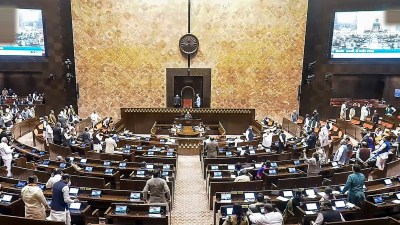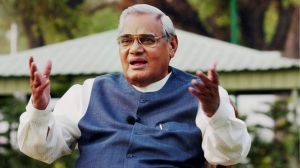The top court’s October 3, 2023 decision on an investigative agency mandatorily sharing the grounds of arrest in writing to the accused was in the context of the Prevention of Money Laundering Act (PMLA). This principle, the SC has now extended to the Unlawful Activities (Prevention) Act (UAPA).

“Thus, any attempt to violate such fundamental right, guaranteed by Articles 20, 21 and 22 of the Constitution of India, would have to be dealt with strictly,” the bench said.
Extending procedural safeguards to UAPA is crucial as the law gives the state wide powers — from relaxing timelines for the state to file chargesheets and its stringent conditions for bail — compared to the Indian Penal Code.
The Supreme Court has in the past allowed very few procedural safeguards in the UAPA cases as these cases often involve serious charges and the prosecution invokes the arguments of national security. For example, although the bar for grant of bail is very high under UAPA, the Supreme Court, in 2021, allowed bail under UAPA for the first time over inordinate delay in conducting trial.
The Delhi Police Special Cell has invoked stringent anti-terror provisions against Purkayastha. While the trial court has taken cognisance of the chargesheet filed by the Delhi Police, it is yet to frame charges to begin the trial.
The 42-page order Wednesday by the bench of Justices B R Gavai and Sandeep Mehta, in granting relief to Purkayastha, also traced several aspects of the investigation that were hurried.
Story continues below this ad
While the Court has refrained from expressing a finding on these issues, they outline the lapses in procedure — from the teething hurry to produce Purkayastha before a magistrate when his counsel is not present, an overwriting in the remand order to vague charges framing the grounds of arrest.
“Now, coming to the facts of the case at hand. Indisputably, FIR No. 224 of 2023 came to be registered on 17th August, 2023. Copy of the FIR was never brought in public domain as the same was not uploaded on the website by the Investigating Agency. Admittedly, the copy of the FIR was not provided to the appellant despite an application having been made in this regard on his behalf till after the order of police custody remand was passed by the learned Remand Judge,” the order noted.
On the remand order itself, the Court said “a bare perusal of the remand order is enough to satisfy us that these two lines were subsequently inserted in the order because the script in which these two lines were written is much finer as compared to the remaining part of the order and moreover, these two lines give a clear indication of subsequent insertion.”
“We feel that any comment on the contents of the remand application and whether the same actually conveyed intelligible grounds of arrest to the accused or whether the same are so vague 36 that it would be impossible to understand, may prejudice the trial of the case,” the order noted.
Story continues below this ad
“We may, however, briefly mention that the grounds of arrest as conveyed to the Advocate are more or less a narration of facts picked up from the FIR which in itself does not indicate any particular incident or event which gave rise to the alleged offences,” the bench said.








































